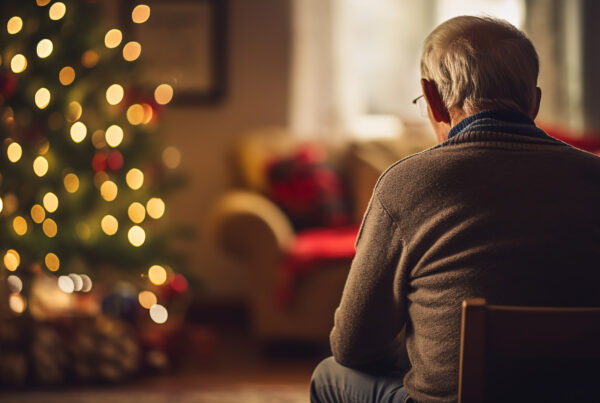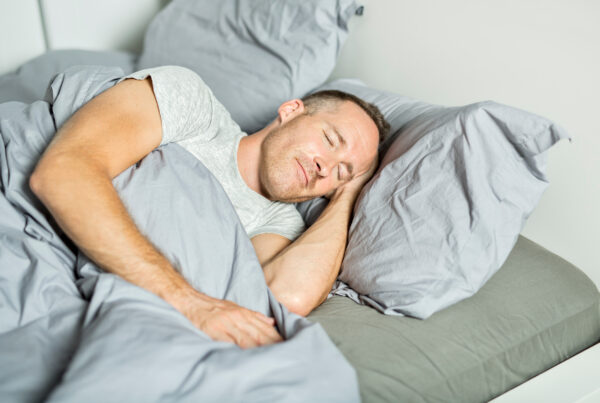”Question: How can I improve my family's sleep routines?
Reading Time: 10 Minutes
MWi Hacks:
- Learn the benefits of adding some trialed and tested hacks to your sleep routine
- Share some of the bio-hacks designed to support rest and relaxation
MWi Summary:
- Sleep deprivation results in increased risk of injury, fatigue, depression, and anxiety.
- Here are some strategies high level athletes use to help increase quality of sleep:
- Saunas have been shown to help us relax, which contributes to better sleep.
- Reading from a paperback book (and not a device) can help reduce stress levels.
- Essential oils can alleviate feelings of tension, stress, irritability among other things.
- Everyone’s personal relaxation style is different. It is helpful to try a variety of strategies.
One important job as a performance coach in sports is to balance both the training and recovery with our players. Currently, I am an NHL strength and conditioning coach for the St. Louis Blues, but my role extends beyond the weight room and hockey rink. Sleep is a major component of recovery, and supporting a good night’s rest is everything in sports.
Our athletes are perpetually exploring ways of sustaining elite performances. Sleep is arguably the best method available to do so. With endless stressors, high-pressure scenarios, and chaotic travel schedules, it can be difficult to find the off switch when the time comes for sleep.
In this article, I share my personal “bio hacks” for resting more effectively. I also explain why we need to consider more effective strategies for rest, with the ultimate goal of setting ourselves up for higher quality sleep.
Relaxing Routines for Better Recovery
The benefits of sleep are well documented. We all want a piece of it, and either you’re getting the right amount or you’re not. More importantly, what can we expect from ourselves while deprived of sleep, and what are the potential consequences? According to Johns Hopkins sleep researcher Patrick Finan, PhD, sleep deprivation can result in increased risk of:
- injury,
- fatigue,
- elevated cortisol levels,
- depression,
- anxiety,
- significant impacts on physical development,
- emotional regulation,
- cognitive performance, and
- quality of life.
Finan also mentions that sleep deprivation can affect your judgment so that you don’t notice its effects. But what about resting? Neil Stanley, a sleep expert, says,”the absolute prerequisite for sleep is a quiet mind.” Research on meditation and the habits of exceptional athletes reveals how mental breaks increase productivity, replenish attention, solidify memories, and encourage creativity. Rest has been defined as:
- a refreshing ease or inactivity after exertion or labor;
- relief or freedom, especially from anything that wearies, troubles, or disturbs; and
- a period or interval of inactivity, repose, solitude, or tranquility.
So, if the brain requires substantial downtime to remain spry and generate its most world class performances, high quality sleep could very well be the product of optimizing rest periods and fine tuning your routine throughout the day. Here are some of the ways to a refreshing rest which will benefit your performance and improve your chances for a restorative night’s sleep.
Deep Heat for Deep Sleep
Sauna bathing is a form of whole-body thermotherapy that has been used in various forms for thousands of years in many parts of the world for hygiene, health, social, and spiritual purposes. Modern day sauna use includes traditional Finnish-style sauna, along with Turkish-style Hammam, Russian Banya, and other cultural variations. These saunas can be distinguished by the style of construction, source of heating, and level of humidity.
Infrared saunas differ from traditional saunas in the way they create heat. Traditional saunas warm the air around you, creating a heated environment that warms your body. Far-infrared saunas use light to heat your body through radiation. “These saunas use infrared panels instead of conventional heat to easily penetrate human tissue, heating up your body before heating up the air,” explains physical therapist Vivian Eisenstadt, MAPT, CPT, MASP.
Saunas have been shown to help relax the body and mind, and this in turn can lead to better sleep. When you use a sauna, your body temperature rises dramatically and then returns to normal at a rapid rate when you leave the sauna. This has the effect of releasing higher levels of melatonin, which is well documented for helping to induce a deep, relaxed sleep.
Research has found that using a sauna can relieve chronic tension and fatigue, most likely due to the release of endorphins that your body experiences with the rise in body temperature. Some researchers consider that infrared radiation may help reduce the inflammation and soreness associated with post-exercise recovery and shorten recovery periods. In theory, this would allow for more intense and frequent training and improved results. However, we still need more research in this specific area.
Consider Bringing Back Paperbacks
Our brains can’t operate at maximum capacity 24 hours a day. We all need periods of disengagement to rest our cognitive capabilities and get back to peak functionality. There are many guys on our team that enjoy reading in various forms, and a few of us have created a book club as a way of sharing interests and sparking conversations outside of the daily grind. We each get the opportunity to pick a book that we all read. The only rule of the book club is that what we read must be a real book, and it can’t be read on a tablet, iPad or kindle.
It may not feel like it, but when we are looking at words on a page, our brain is running several simultaneous processes, from word analysis and auditory detection to vocalization and visualization. A 2009 study conducted by the University of Exeter found that reading was more effective and quicker at reducing stress than taking a walk, drinking a cup of tea or listening to music. In fact, the researchers found that just six minutes of reading could be enough to reduce stress levels by up to two thirds. Cognitive neurologist, Dr David Lewis, who conducted the test, said:
“Losing yourself in a book is the ultimate relaxation. It really doesn’t matter what book you read. By losing yourself in a thoroughly engrossing book you can escape from the worries and stresses of the everyday world and spend a while exploring the domain of the author’s imagination. This is more than merely a distraction but an active engaging of the imagination as the words on the printed page stimulate your creativity and cause you to enter what is essentially an altered state of consciousness.”
Paced Breathing and Scent Therapy
The sense of smell is our most primitive sense, and yet it’s one of the most powerful senses that cannot be turned off. A recent study by Rockefeller University in New York City found that we remember 35% of what we smell, compared to only 5% of what we see and 2% of what we hear. Scents are processed in the olfactory bulb, which has direct connections to the amygdala and hippocampus. These are the parts of the brain that provide emotional reactions and memories. While it’s certainly possible to see an object or hear a song that elicits emotions and memories, you rarely have a reaction that is so immediate and strong as when you encounter a certain smell.
When diffused, essential oils can:
- boost energy;
- clear the respiratory tract;
- stimulate circulation; and
- alleviate feelings of nervous tension, stress and feelings of irritability.
Vanilla is famous for being a potent relaxer. In fact, people who smelled vanilla while completing a stress test had more stable heart rates and better blood pressure readings than those who took the stress test in an unscented room. If you can introduce ways of inviting the scent of lavender in your bedroom through a diffuser that uses essential oils, you may have a very good chance of lowering your heart rate and decreasing your blood pressure, therefore putting you in a more relaxed state.
Find What Works for You
Everyone reacts differently to rest, and the challenge is in knowing what’s working. How do you know if the lavender is working? How do you know if reading is actually working for you before bed? It is important to have access to that data to be able to see what’s working.
Our job is to help our athletes understand and interpret the data we collect while they are sleeping, and how the strategies leading up to bedtime impact the various characteristics that we can measure while asleep. In the hockey world, rest has become more embraced, but many still think it is equated with laziness. When we treat rest as the catalyst for improved performance and better quality sleeping patterns, we elevate it into something valuable that can help sustain elite performances.
MWi would like to thank Eric Renaghan and Fatigue Science, for their expert insights that we were able to share with our community.
Check out Fatigue Science Blog for more amazing insights:
More on the Author:
Eric Renaghan was named the head of Strength and Conditioning for the St. Louis Blues (NHL) in 2016. Prior to his position with the Blues, he held the title of assistant S&C coach for the Vancouver Canucks. Eric is currently completing his graduate studies in biomechanics at Lindenwood University. His main interest is in neuromechanics and movement expression as it relates to sport performance.
References
Koulivand, Peir Hossein, et al. “Lavender and the Nervous System.” Advances in Pediatrics., U.S. National Library of Medicine, 2013, www.ncbi.nlm.nih.gov/pmc/articles/PMC3612440/. Retrieved June 20, 2018.
Scoon, G. S., Hopkins, W. G., Mayhew, S. & Cotter, J. D. Effect of post-exercise sauna bathing on the endurance performance of competitive male runners. Journal of science and medicine in sport / Sports Medicine Australia 10, 259-262, doi:10.1016/j.jsams.2006.06.009 (2007).
Kukkonen-Harjula, K. et al. Haemodynamic and hormonal responses to heat exposure in a Finnish sauna bath. European journal of applied physiology and occupational physiology 58, 543-550 (1989).
Reading at Bedtime Associated With Longer Nighttime Sleep in Latino Preschoolers
Scott J. Brown, MD, Kyung E. Rhee, MD, MSc, MA, Sheila Gahagan, MD, MPH. Journal of Clinical Pediatrics, Volume: 55 issue: 6, page(s): 525-531






